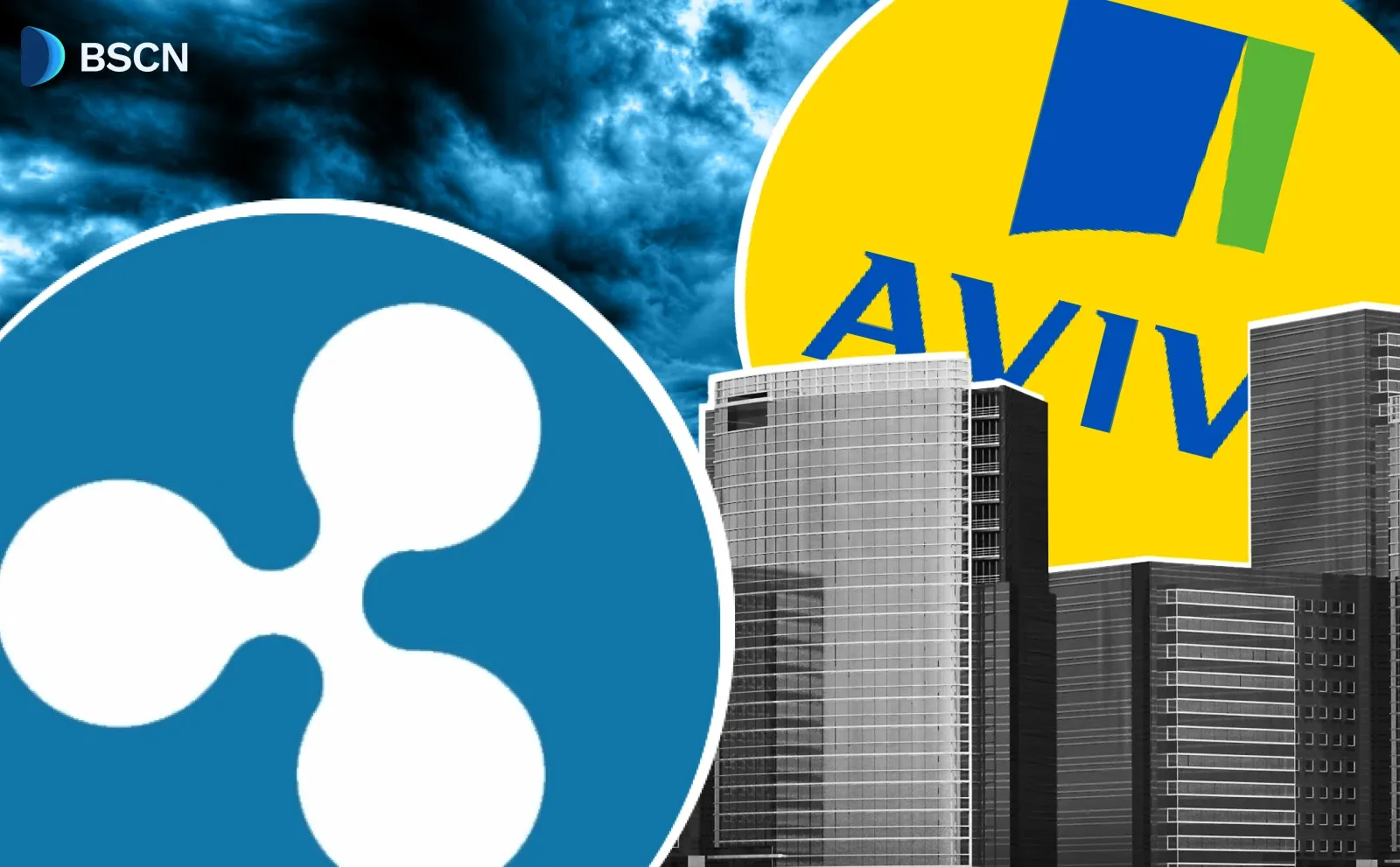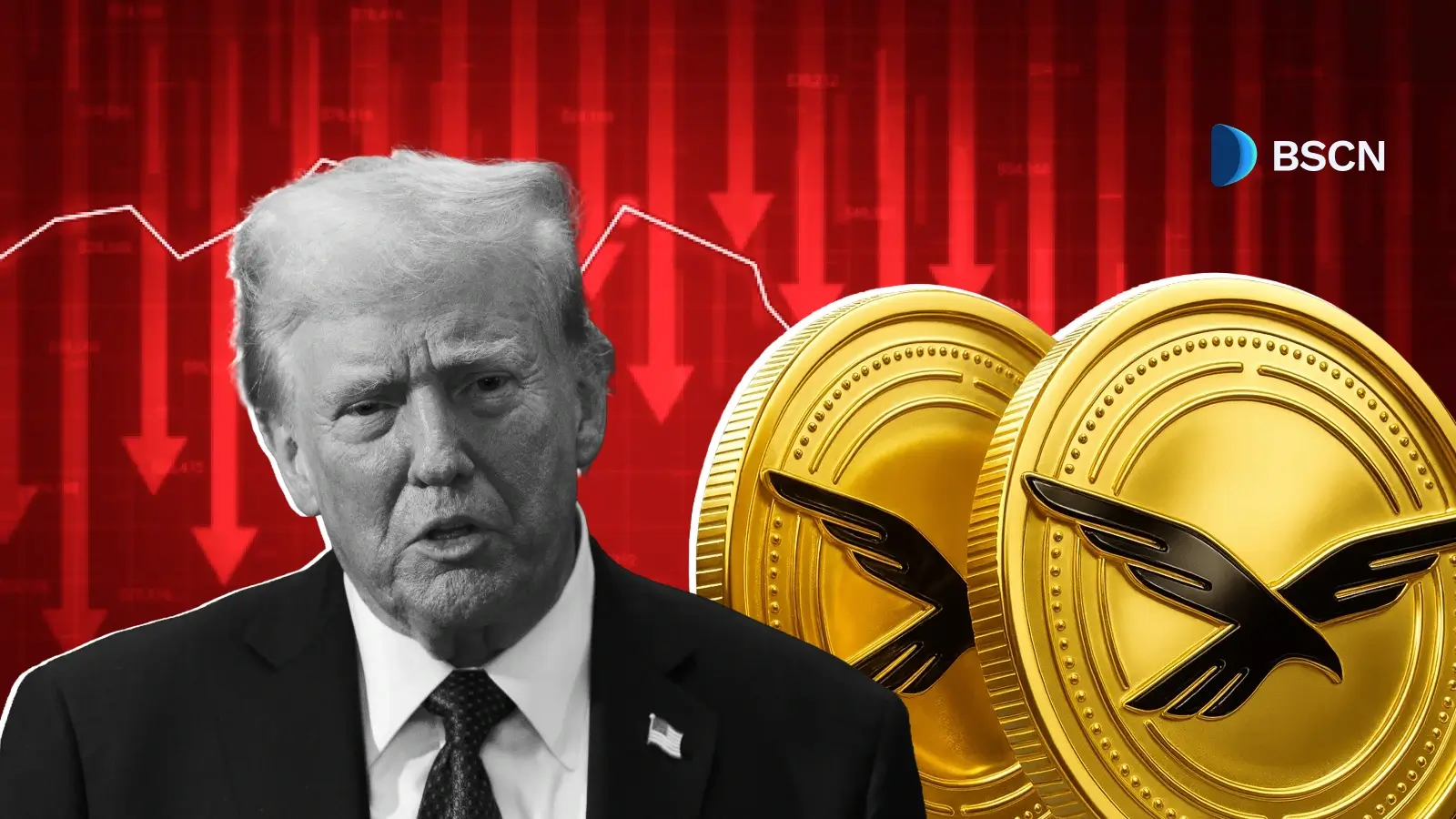Ripple, DBS and Franklin Templeton Team up to Integrate Stablecoins With Tokenized Collateral

Ripple joins DBS and Franklin Templeton to use tokenized money market funds and stablecoins for repo market innovation on the XRP Ledger.
Soumen Datta
September 18, 2025
Table of Contents
Ripple partnered with DBS Bank and Franklin Templeton to test repo market solutions using tokenized collateral and stablecoins. The collaboration introduces a model where Franklin Templeton’s sgBENJI token, representing a tokenized U.S. dollar short-term money market fund, will be listed on DBS Digital Exchange (DDEx) alongside Ripple’s RLUSD stablecoin.
This setup allows accredited and institutional investors to swap between sgBENJI and RLUSD, rebalance portfolios 24/7, and earn yield during volatile periods.
Why Repo Markets Matter
Repo markets, short for “repurchase agreement” markets, are the plumbing of global finance. They allow banks and institutions to borrow short-term funds by pledging safe securities such as Treasuries.
- A repo works when one party sells a security for cash with an agreement to repurchase it later at a higher price.
- The difference between sale and repurchase is the interest earned by the lender.
- In traditional finance, repos are critical for liquidity management.
By bringing repos onto blockchain rails with tokenized collateral, DBS, Ripple, and Franklin Templeton aim to reduce settlement times and broaden liquidity access.
Tokenized Money Market Funds
Franklin Templeton’s sgBENJI is a blockchain-based token tied to shares in its Onchain U.S. Dollar Short-Term Money Market Fund. Traditionally, money market funds invest in safe, short-term instruments like U.S. Treasuries, commercial paper, or repos themselves.
On DDEx, investors will be able to trade RLUSD stablecoins directly for sgBENJI tokens:
- Faster access: Unlike traditional MMF settlements that can take up to two business days, trades on-chain settle within minutes.
- Yield-bearing: Investors moving from volatile assets into sgBENJI earn a return similar to traditional money market funds.
- 24/7 trading: Tokenized funds remove the restriction of standard market hours.
DBS Digital Exchange’s Role
DBS will initially support trading between RLUSD and sgBENJI on its regulated digital asset exchange. The next phase will explore repo-style lending:
- Collateralized credit: DBS clients may use sgBENJI as collateral to obtain loans from the bank or from third-party lenders.
- Agency model: In third-party repos, DBS would act as the collateral agent, providing additional trust and custody.
- Liquidity expansion: This setup would create wider access to liquidity pools while ensuring collateral remains secure.
Why the XRP Ledger
Franklin Templeton plans to issue sgBENJI on the XRP Ledger (XRPL), known for low fees and fast settlement. Ripple argues that XRPL is a strong fit for high-volume, low-latency assets like tokenized money market funds.
Benefits of using XRPL include:
- Efficiency: Low transaction costs and near-instant settlement.
- Interoperability: Strengthens Franklin Templeton’s multi-chain tokenization strategy.
- Scalability: Supports the throughput needed for institutional-grade repo transactions.
Ripple’s RLUSD stablecoin, now approaching $730 million in market cap, will serve as the base currency for trades on DDEx.
Institutional Adoption Trends
The move reflects broader institutional interest in digital assets. A recent study by EY-Parthenon and Coinbase found that 87% of institutional investors expect to allocate to digital assets in 2025.
For these investors, tokenized assets and stablecoins offer:
- A more efficient way to manage liquidity.
- Tools to hedge volatility.
- Yield opportunities beyond holding traditional cryptocurrencies.
Key Takeaways
- Ripple, DBS, and Franklin Templeton have signed an MOU to bring repo trading into blockchain-based markets.
- DBS will list Franklin Templeton’s sgBENJI token and Ripple’s RLUSD stablecoin on its digital exchange.
- sgBENJI will be tokenized on the XRP Ledger, offering efficiency and fast settlement.
- The plan includes enabling sgBENJI to be used as collateral for repo-style credit.
- Ripple’s RLUSD stablecoin will serve as the base currency for these transactions.
Conclusion
The partnership between Ripple, DBS, and Franklin Templeton connects stablecoins, tokenized money market funds, and repo markets on blockchain rails. Through the use of XRP Ledger for token issuance and RLUSD for settlement, the model provides institutional-grade custody as well as on-chain efficiency.
Resources:
Ripple’s announcement about partnership with DBS and Franklin Templeton: https://ripple.com/ripple-press/dbs-franklin-templeton-to-launch-trading-and-lending-solutions-tokenised-mmf-ripple-stablecoin-rlusd/
DBS, Franklin Templeton, Ripple launch tokenised fund trading solutions - report by Asian Banking & Finance: https://asianbankingandfinance.net/news/dbs-franklin-templeton-ripple-launch-tokenised-fund-trading-solutions
- 2025 Institutional Investor Digital Assets Survey by EY-Parthenon and Coinbase: https://www.ey.com/content/dam/ey-unified-site/ey-com/en-us/insights/financial-services/documents/ey-growing-enthusiasm-propels-digital-assets-into-the-mainstream.pdf
Read Next...
Frequently Asked Questions
What is sgBENJI?
sgBENJI is the tokenized version of Franklin Templeton’s Onchain U.S. Dollar Short-Term Money Market Fund. It represents fund shares and can be traded 24/7 on blockchain.
How does RLUSD fit into the partnership?
Ripple’s RLUSD stablecoin will be paired with sgBENJI on DBS Digital Exchange, allowing investors to swap between a stable digital dollar and a tokenized yield-bearing fund.
Why use the XRP Ledger?
The XRP Ledger provides low fees, fast settlement, and scalability, making it suitable for managing tokenized securities like money market funds.
Disclaimer
Disclaimer: The views expressed in this article do not necessarily represent the views of BSCN. The information provided in this article is for educational and entertainment purposes only and should not be construed as investment advice, or advice of any kind. BSCN assumes no responsibility for any investment decisions made based on the information provided in this article. If you believe that the article should be amended, please reach out to the BSCN team by emailing [email protected].
Author
 Soumen Datta
Soumen DattaSoumen has been a crypto researcher since 2020 and holds a master’s in Physics. His writing and research has been published by publications such as CryptoSlate and DailyCoin, as well as BSCN. His areas of focus include Bitcoin, DeFi, and high-potential altcoins like Ethereum, Solana, XRP, and Chainlink. He combines analytical depth with journalistic clarity to deliver insights for both newcomers and seasoned crypto readers.
Crypto Project & Token Reviews
Project & Token Reviews
Comprehensive reviews of crypto's most interesting projects and assets
Learn about the hottest projects & tokens

















